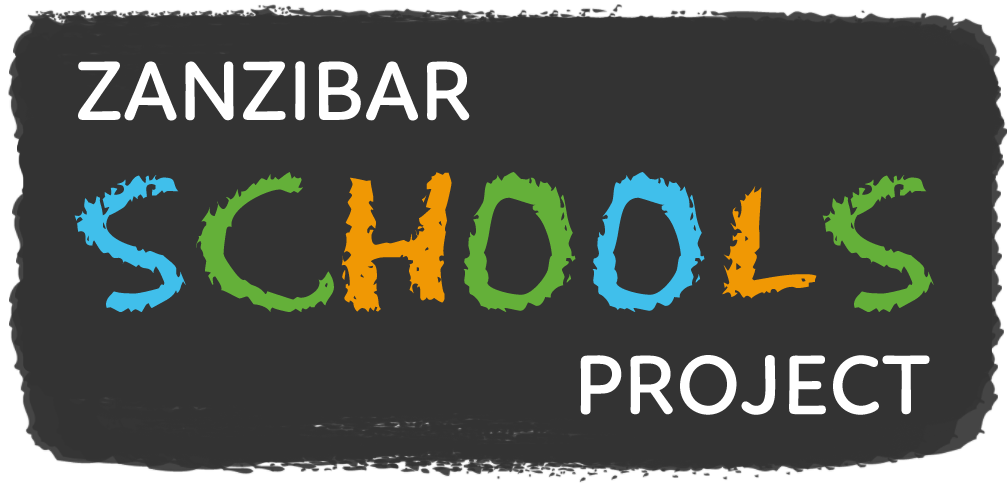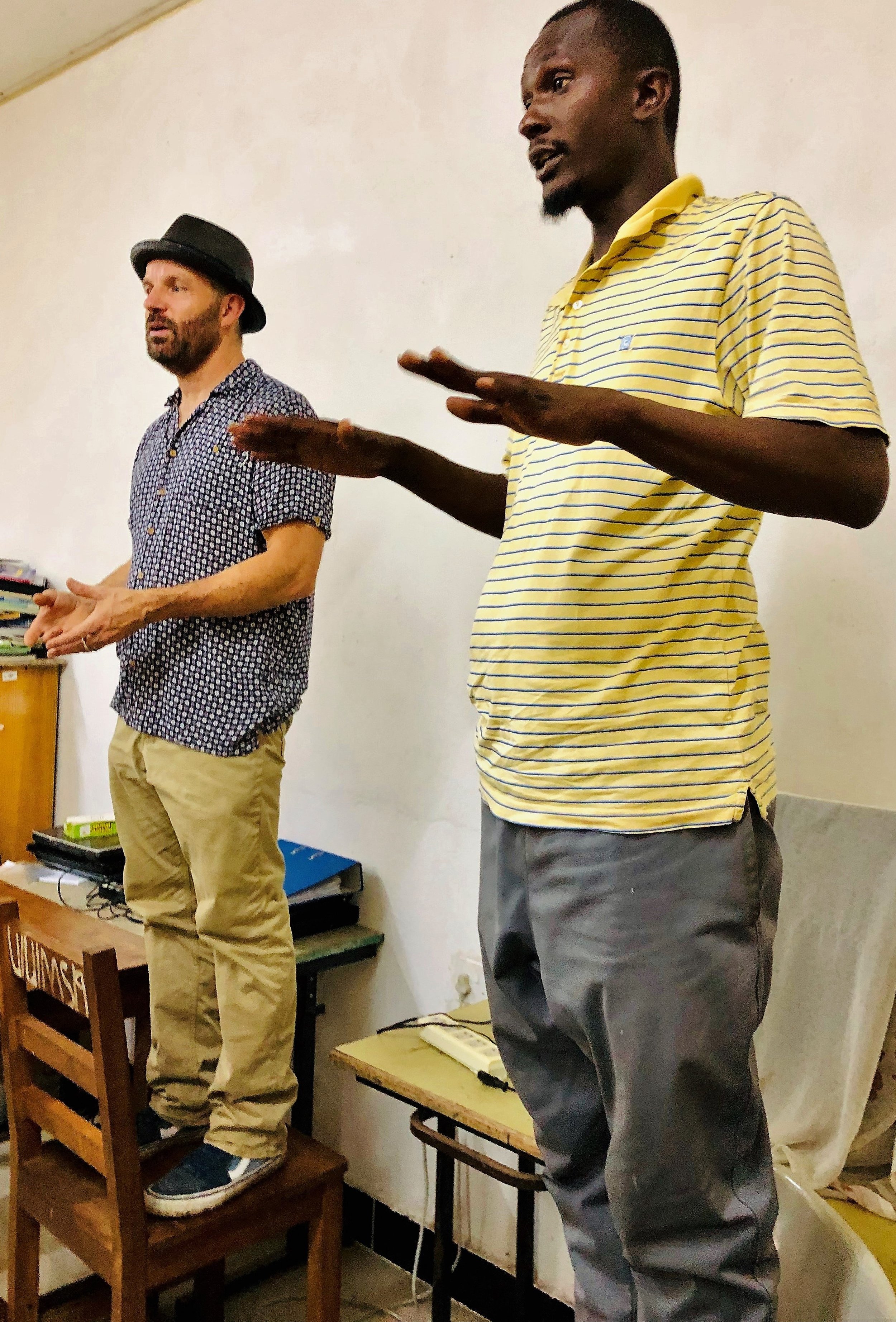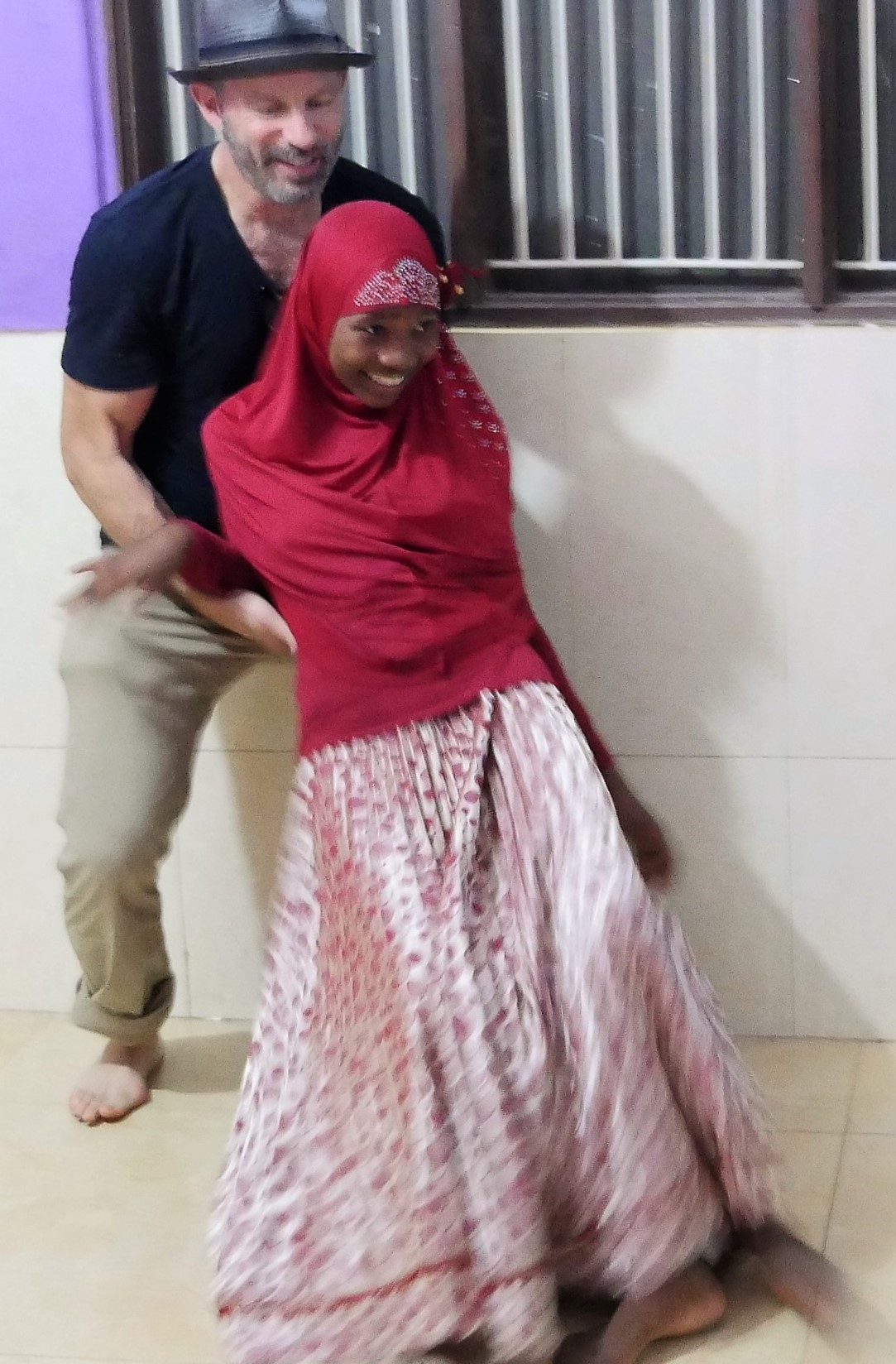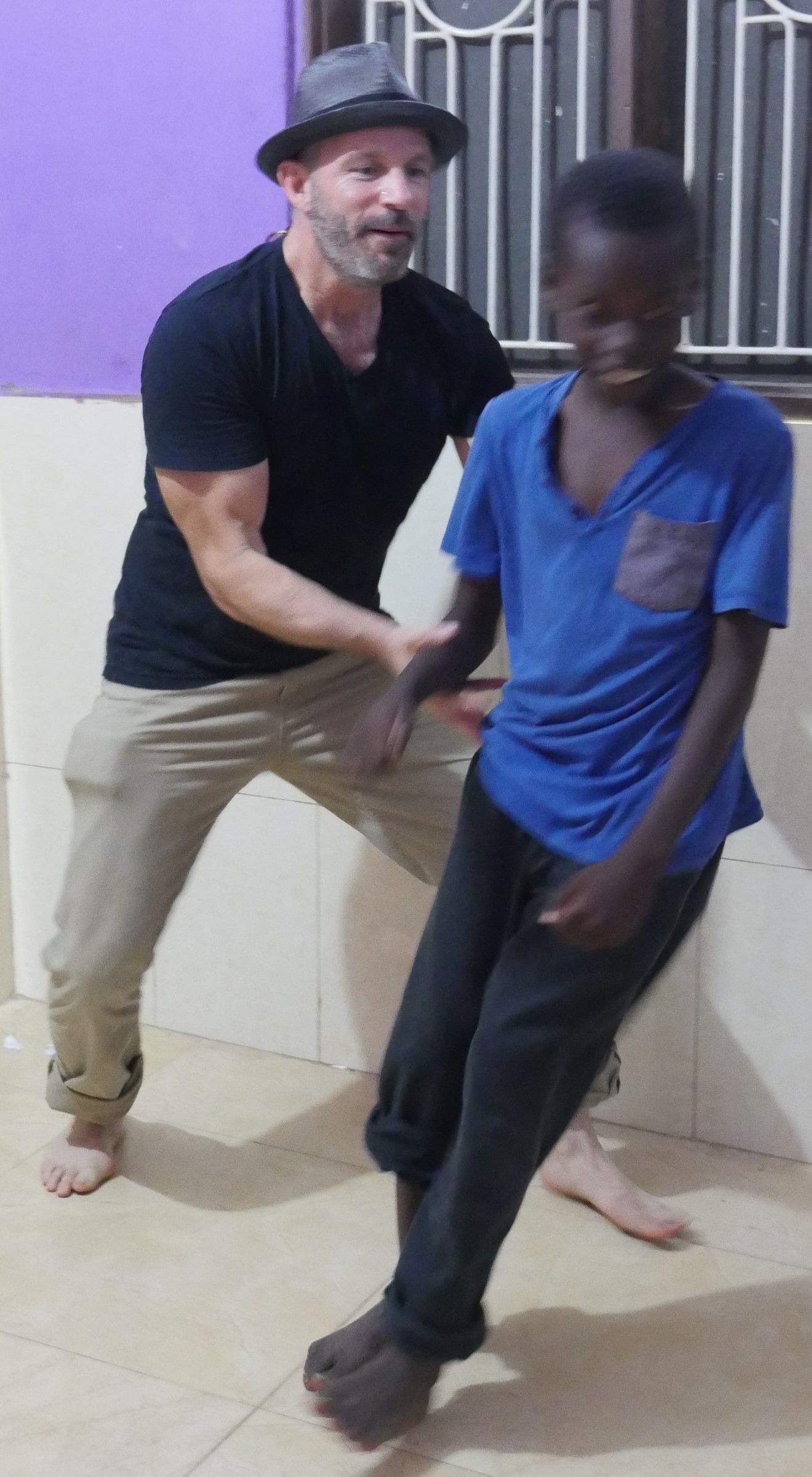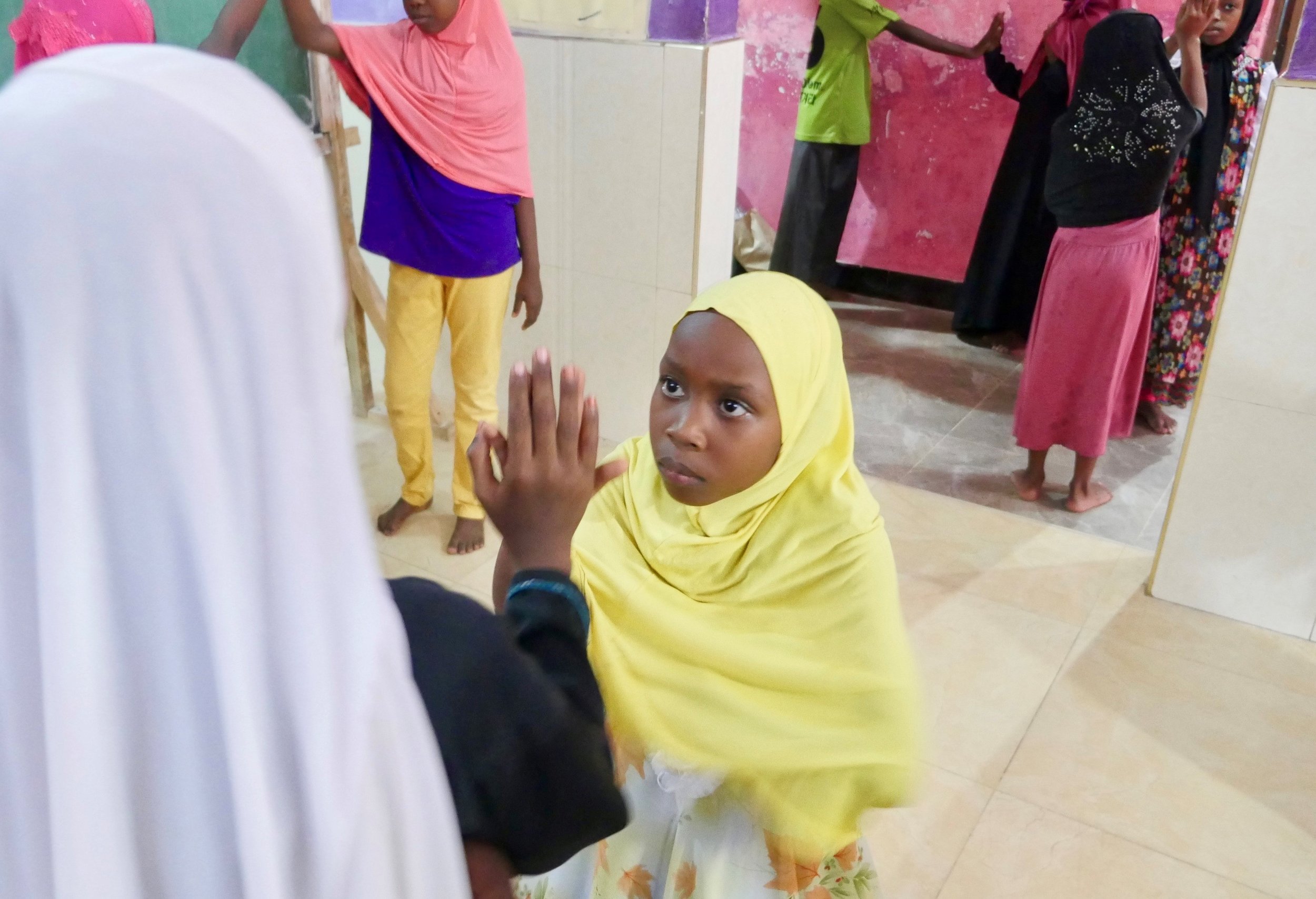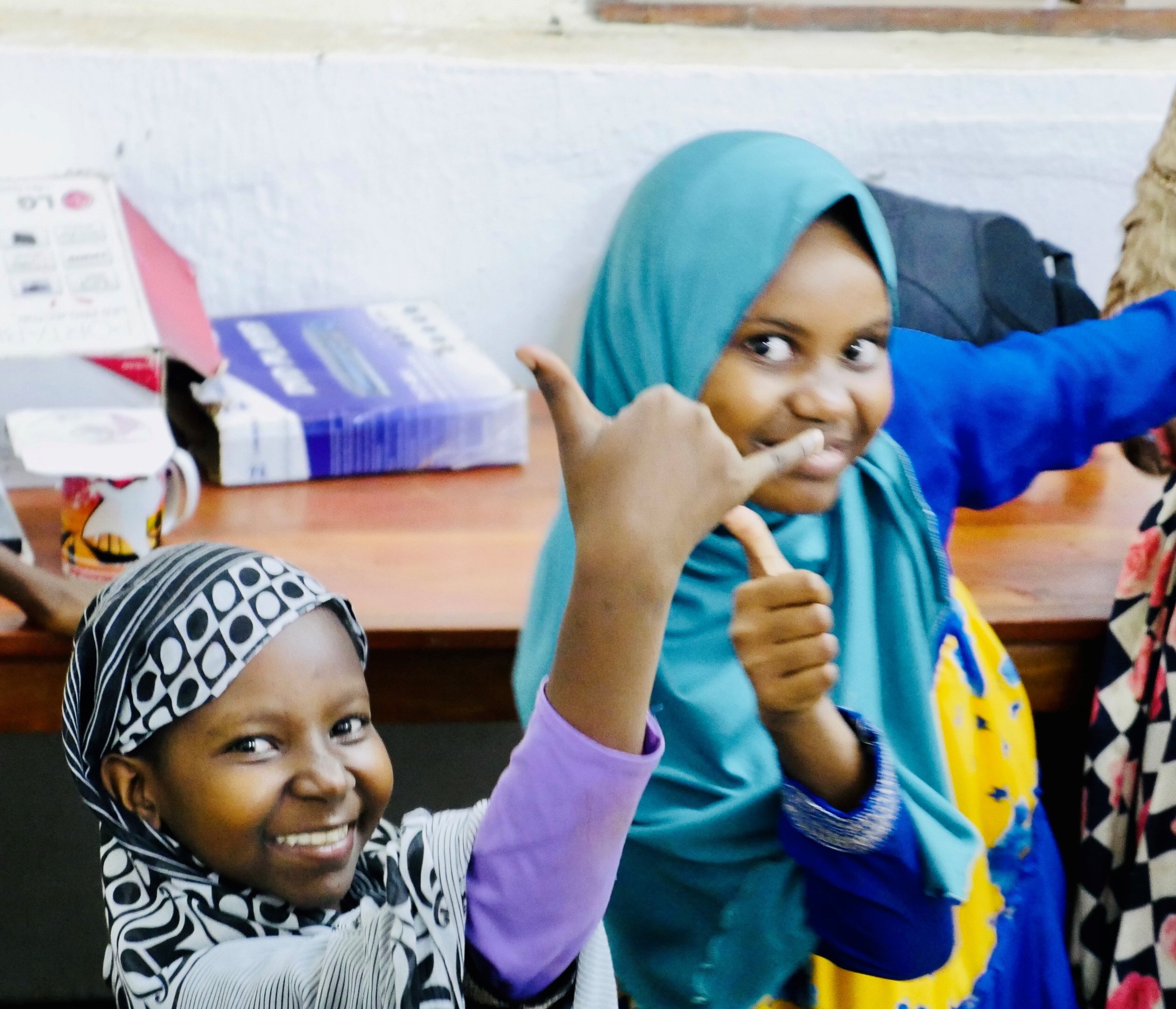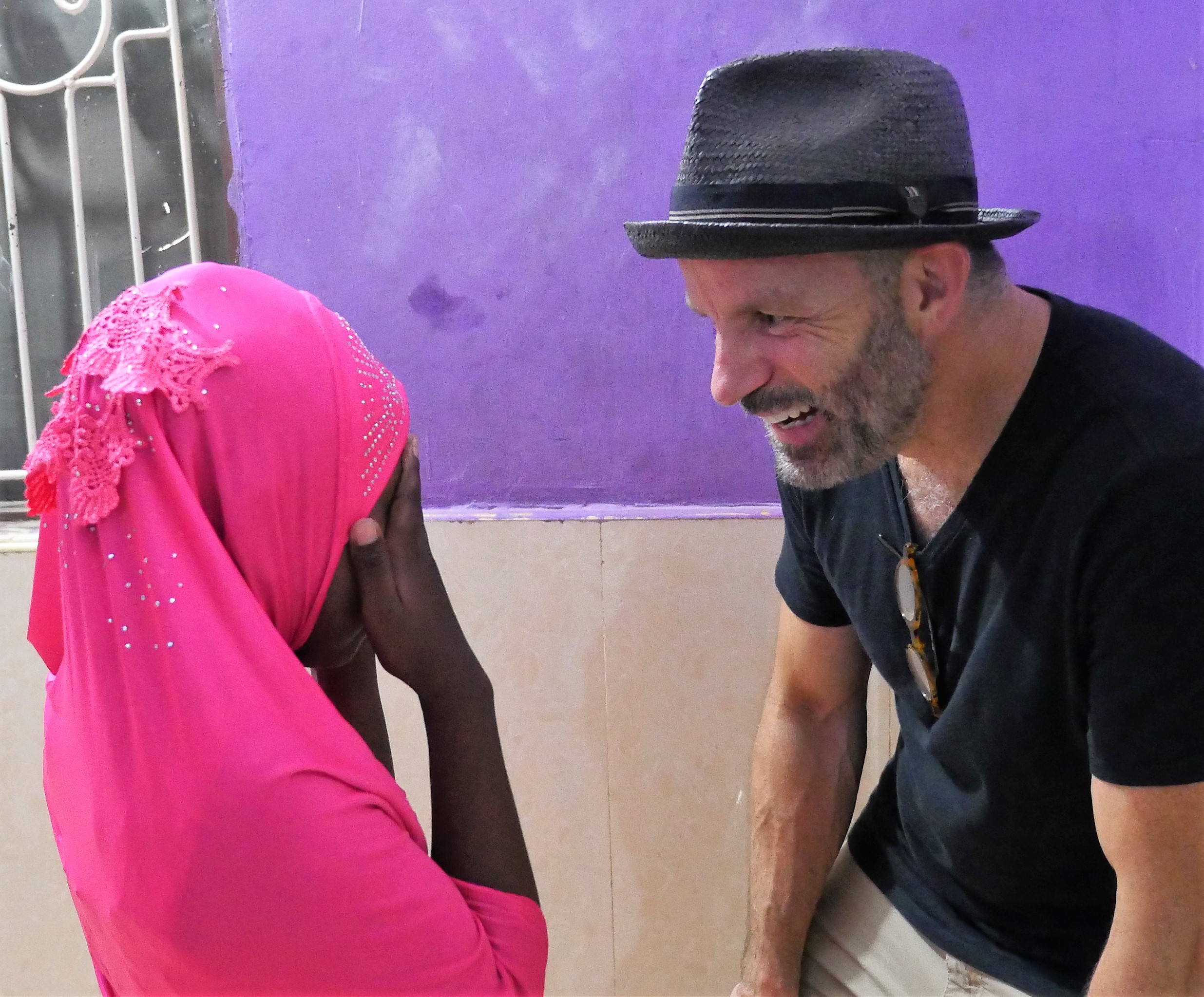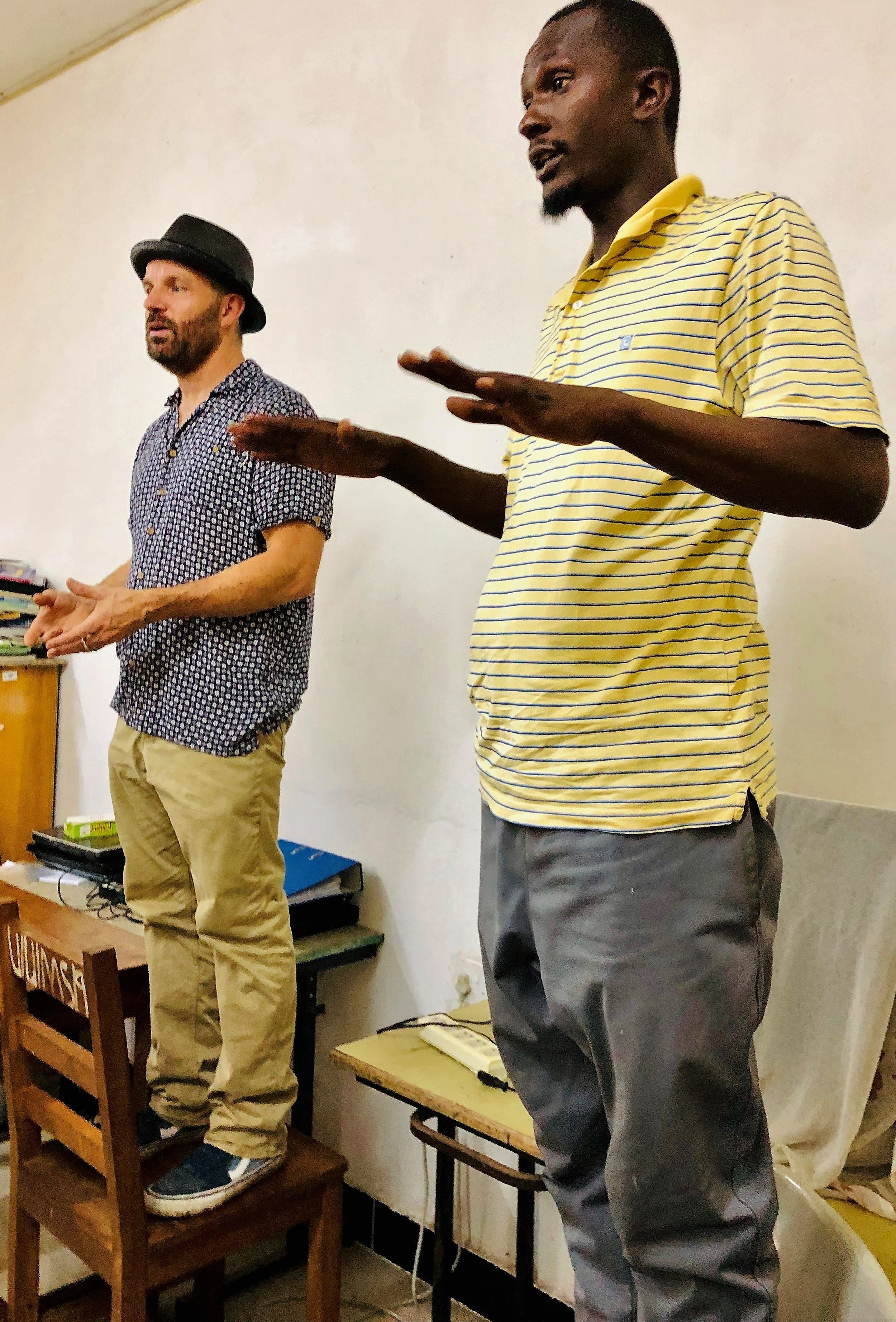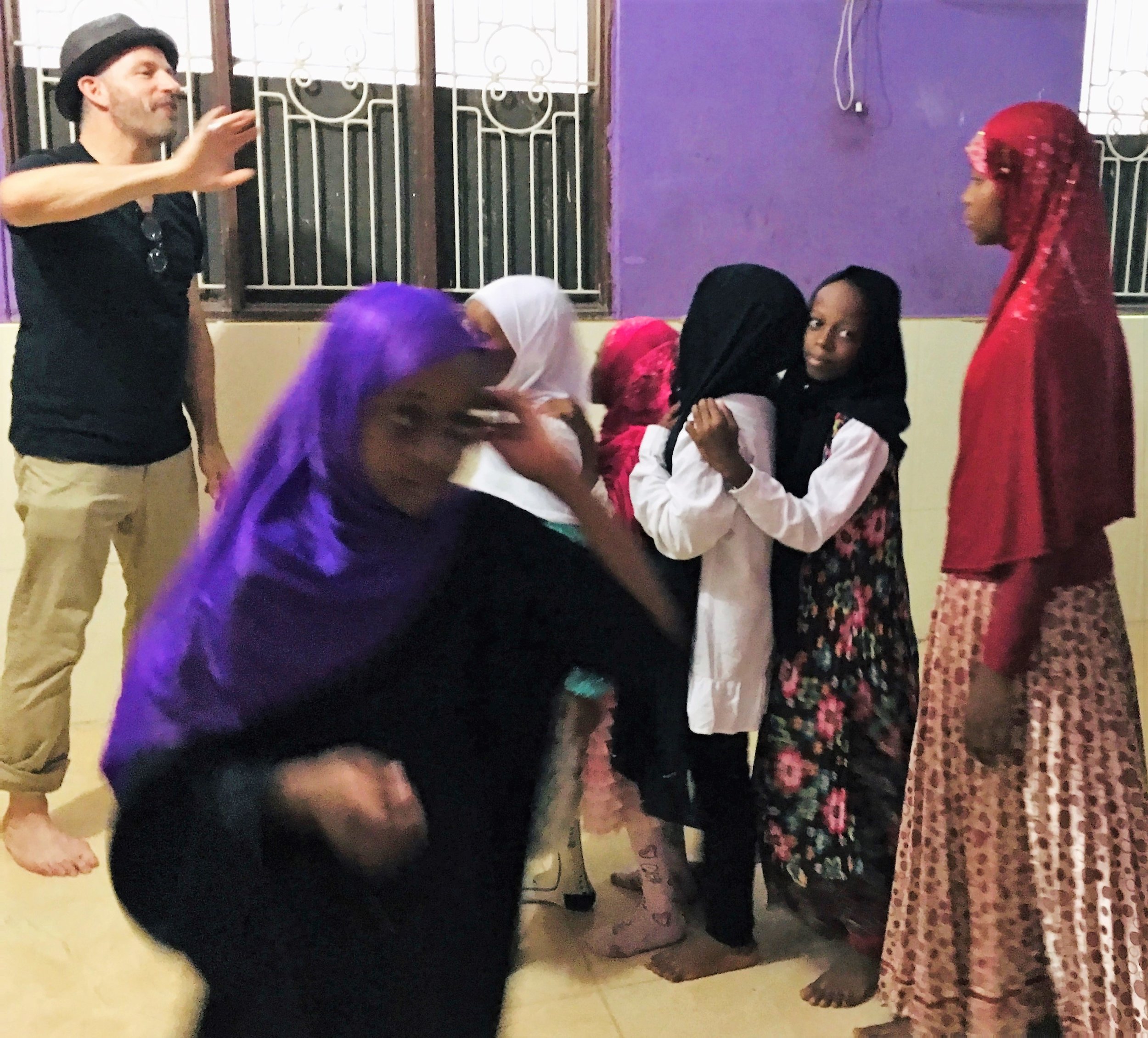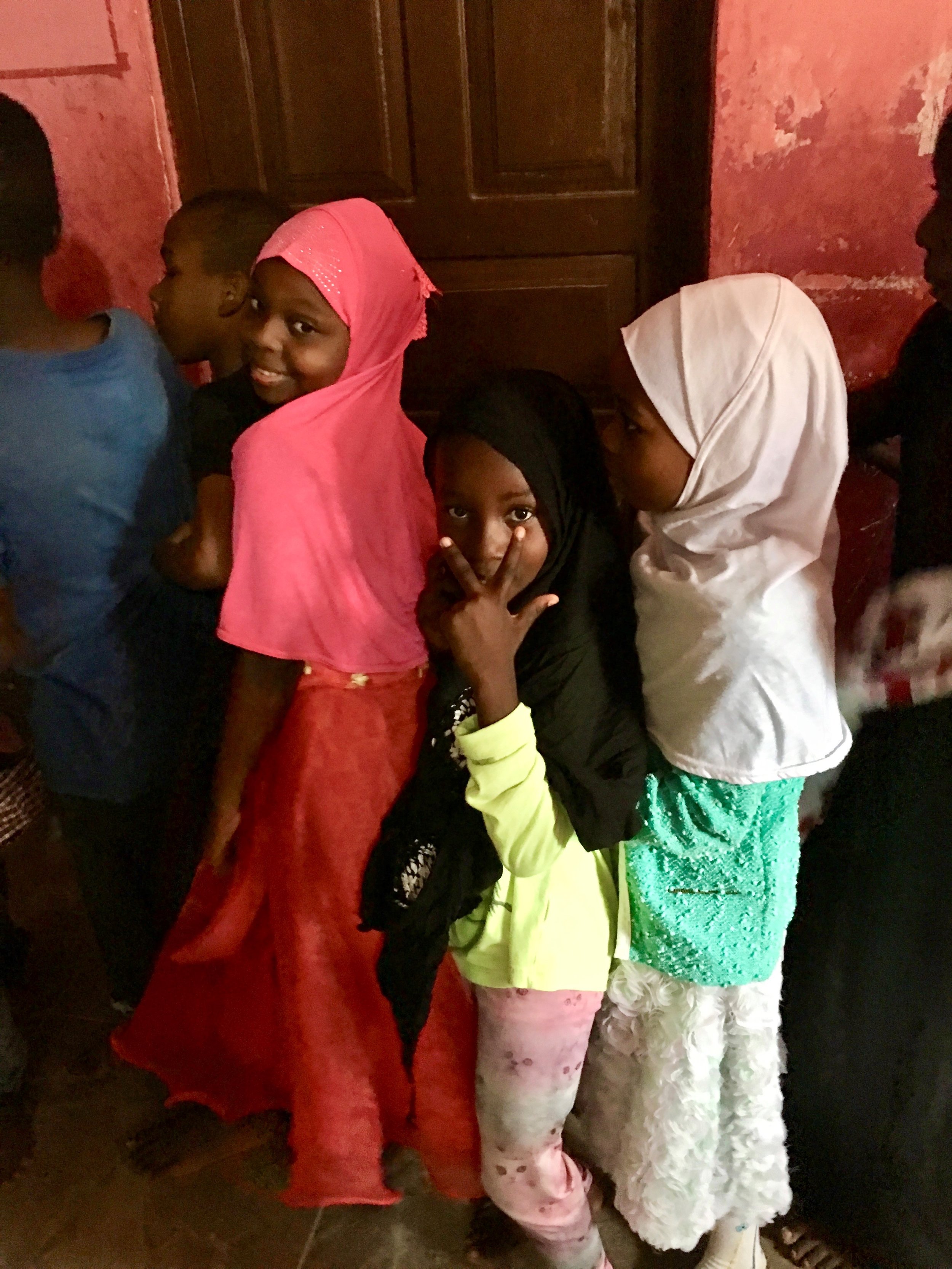Initially, we planned our trip to Zanzibar so that we could research the island’s unique history of occupation, slavery, music, and religion for a book Bryan is writing with Mark LeVine on the role of highly politicized artistic production, circulation, and consumption in the transformation of political subjectivities in Africa, the Middle East, and South Asia. Paramount to the book project is the role of children in interventions made by political groups in response to various forms of oppression and discrimination, such as made by children’s theater groups in Port Harcourt, Palestinian refugees in Jordan, and youth Maoist activists in West Bengal. In preparation for the trip, we began looking into the educational institutions in Zanzibar and different NGOs who are doing valuable work there to improve education for youths and for women in both urban and rural areas. This exploration eventually led us to Zanzibar Schools Project and to Gasica of Zanzibar Learning 4 Life Foundation. After learning what extraordinary work both institutions are doing, we asked if we could offer as a collaborative component to our research trip (something Bryan and Mark often do at their research locations), what could be characterized as a “very advanced” acting workshop for the K-12 students and a Women’s Empowerment Workshop for teenagers and older.
Bryan is a Professor of Performance Studies and Theater at the University of California, Irvine, and Artistic Director of the Amsterdam-based Transversal Theater Company, which runs outreach projects with educational institutions in developing countries. He ran the acting workshops, which are not “acting” classes per se, but rather an organized sequence of exercises designed to build group trust, encourage intimacy, increase bodily and proprioceptive awareness, expand imagination, and, through guided meditation, help students situate themselves self-reflexively in their life journeys. Gosia works worldwide as a life coach, with focus on personal development, resolving social issues, and achieving healthy and joyful living, professionally and spiritually. She ran the empowerment workshops in which the participants learned a number of consciousness-activating, self-perception, and energetic tools by which to better comprehend their own remarkable gifts and how they can share and apply them socially and professionally in the interest of both fulfilling their aspirations and contributing valuably to lives of others.
Given the young ages of some of the students, Bryan was concerned that the intensity and length of the workshops might discourage the students from fully committing to the exercises. For instance, in one of the exercises, pairs of students put one of their palms together, crossing their bodies, and while looking into each other’s eyes continually as they either attempt to give something, energetically, or resist what is being given, first giving while the partner resists, then switching, then both receiving. This goes on for 20 minutes. In another exercise, the students run toward Bryan with their eyes closed until Bryan tells them to stop or he catches them before they run into the wall behind Bryan. Bryan worried that his meanings might get lost in the simultaneous translation, from English to Swahili, or that the translation might not keep up with his pace. This is especially important during the guided meditation exercises.
As it turned out, Gasica was able to translate Bryan brilliantly and all of the students maintained their focus and commitment for the entire workshops. Moreover, our worry over how the girls and boys would work together, given the cultural codes with regard to gender difference, proved to be unfounded. Bryan had encountered some difficulty with boys and girls working together in other Muslim communities where dress codes were strictly enforced. In Zanzibar, we were not only hugely impressed by the ease, humility, and decorum with which all the students performed, we were happy to see that the girls proved significantly more adventurous than the boys when doing the trust and meditation exercises. The girls wanted to repeat the exercises more and ran faster than the boys. During the guided meditation, in which the students imaginatively transform into several different species, such as fish and lizards, the girls were more illustrative in their becomings, allowing their bodies to more fully perform the characteristics associated with the creatures. The students performed with their eyes closed, so they were not performing for anyone but us, Gasica, a few others who kept their eyes open, and most importantly for themselves.
This showed much creativity, wherewithal, and self-confidence on their part. All the students, the boys as well as the girls, impressed us so much that we decided to return to Zanzibar to collaborate on a larger theater project that would give the students a chance to take their performance skills, creativity, and confidence to higher levels. We are returning this June/July 2019.
Knowing little about Zanzibari culture, Gosia wondered how the cultural differences would affect her workshops. Since her workshops are more conversational, and ask the participants to reveal publically their weaknesses, strengths, fears, and dreams, negotiating social codes and personal inhibitions are sometimes her biggest challenges when working in communities unfamiliar to her. Moreover, beyond the conversational, Gosia asks the participants to do a number of body processing and energy attuning exercises that can resonate deeply with their sense of well-being and personal goals. She taught them several energetic tools that would increase their self-trust, clarity and confidence in simple and more complicated life choices. Gosia was surprised that even the younger women already had specific goals, such as becoming teachers, doctors, lawyers, journalist, and guides. It is unusual for her to encounter teenage girls with such clear ideas of what they want to do in their lives. All of the participants learned how to communicate with their bodies through simple muscle testing. They were amazed by how easy it was for them to listen to their bodies, and to experience the flow of energy through their bodies as they did “energy pulling” exercises, which is a method for fostering open communication and positive connectivity with others. One of the groups was a little shy and apprehensive at first but became more and more open and curious when listening to descriptions of the technique that allowed them to disconnect from negative experiences in their past. After they tried the technique, they became more relaxed, trusting, and eager to learn more. They all lit up after Gosia guided a meditation in which she invited the participants to discover their inner brilliance, beauty, and uniqueness. So much joy radiated from the teenage girls and women after discovering their hidden “super powers.” Gosia enjoyed their openness, curiosity and warmth.
We are very much looking forward to returning to Zanzibar this summer. Thank you Ann and Gasica for giving us this opportunity to collaborate with you and your students, and thank you to the Donald Bren Foundation for supporting our research.
